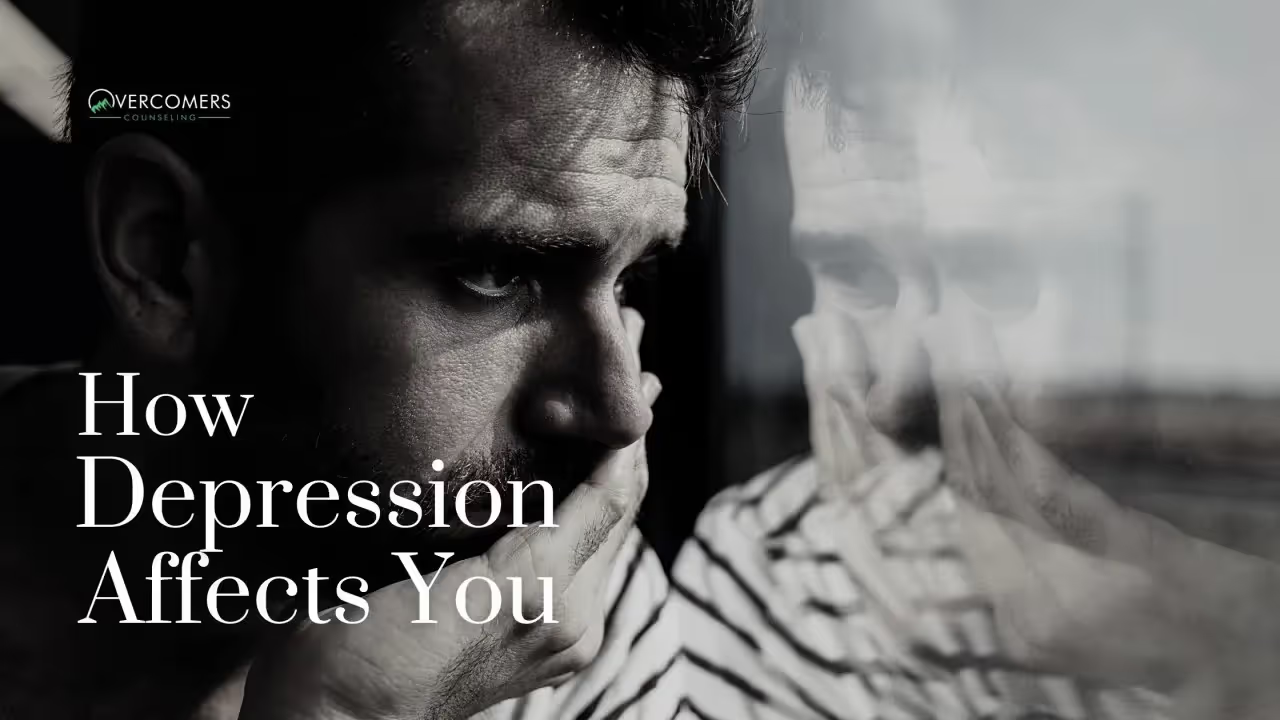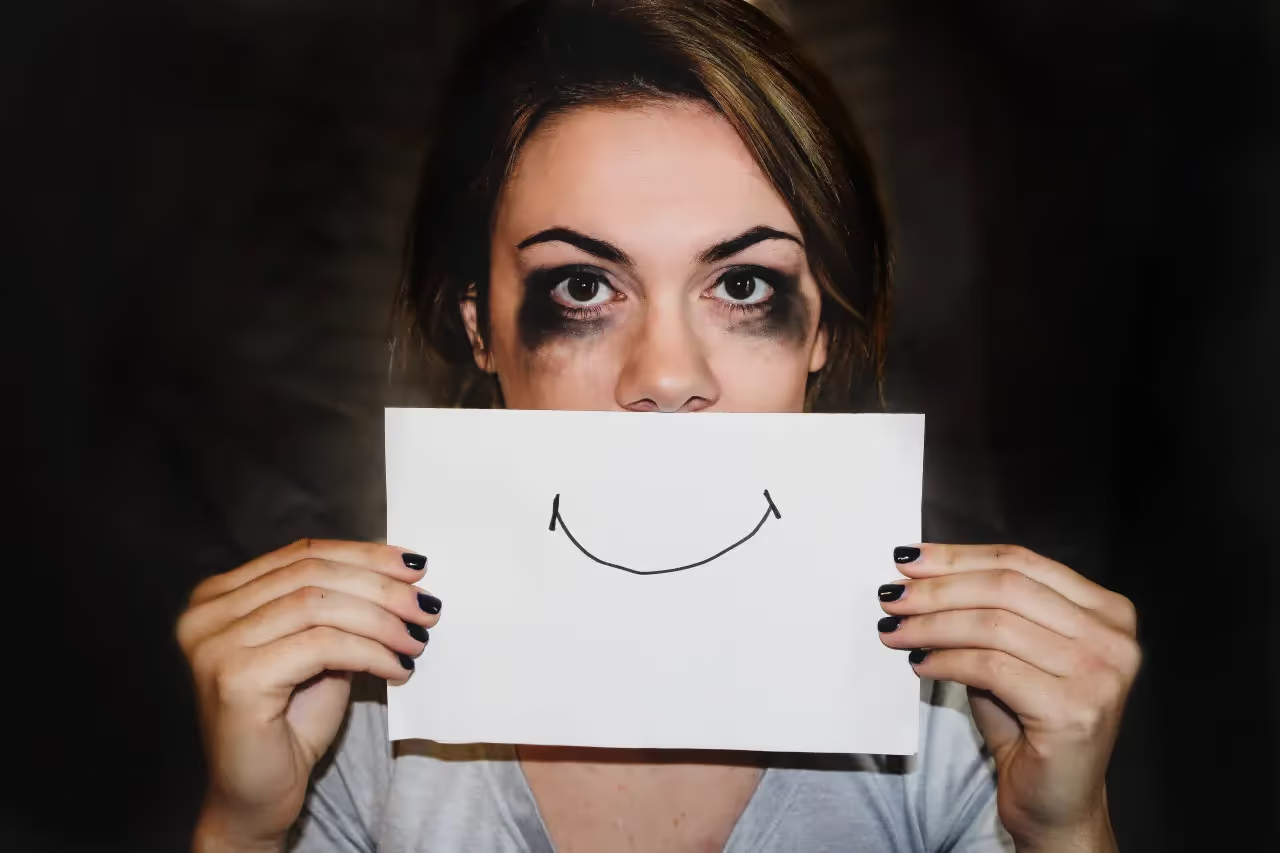You've probably heard the word depression, but you might still be unsure how depression affects you. The symptoms of depression may be subtle and be hard to...

You've probably heard the word depression, but you might still be unsure how depression affects you. The symptoms of depression may be subtle and be hard to notice at first.
How depression affects you can vary from person to person. People who experience depression typically see a reduction in their enthusiasm for the activities that they usually enjoy. This can result in not only emotional changes but physical changes as well.
While how depression affects you might vary, people typically see changes in sleeping patterns, changes to eating patterns, loss of the ability to focus or concentrate, a lack of motivation, a decrease in interest in activities and hobbies, self-isolation, decreased libido, a lessened affect or expressiveness, among others.
If you or someone you love is showing these symptoms, you may be affected by depression. Unfortunately, one of the effects of Depression is a loss of motivation. This means that depression can often cause people to lack the motivation to treat it.
However, treatment is the best and most proven way to lessen the effects of Depression.
Before you seek treatment you may want to better understand the effects of depression.
Because depression begins in your brain, it can affect all three parts of yourself: your mind, your emotions, and your body.
It is, however, important to remember that the effects of depression can vary from person to person. That means you may be experiencing some of these effects of depression, but not all.

Most people experience the effects of depression on their mind. This typically presents as a change in cognitive abilities. This can present as a noticeable brain fog or a decreased ability to think clearly.
Similarly, depression may also affect your ability to concentrate or focus. These effects of depression could affect your ability to work. If you're having trouble paying attention during meetings or focusing on tasks at work, that may be an effect of depression.
Depression may lead you to feel outside of your body, as if your mind and body are no longer connected to each other. You may find yourself blaming yourself for these feelings or these issues which is why it's important to understand that they're effects of depression.
Once you understand that, it may be easier to avoid blaming yourself and seeking the help that you need.
The second major effect of depression may be on your emotions. This typically presents as a deadening of feelings, emotions, or motivation. This may cause you to become an emotional dropout: someone who experiences a lack of emotion for the people, events, and things that they typically care about.
This increase in apathy might also cause you to self-isolate. You may find yourself avoiding people and activities that you usually enjoy.
If you find yourself unable to leave bed, the couch, or your home - that might be an effect of depression. It could also be an effect of depression if you have trouble meeting social obligations or going to work.
This might also present as a lack of enthusiasm about events in your life. An engagement, a birthday, a birth, or a promotion might not give you the same sense of pride or excitement that it typically would.
This could also include hobbies or activities that you have typically enjoyed. A sudden change in interests or enthusiasm for interests can be an effect of depression.
The final major effects of depression are on your body. We tend to think of depression as mostly affecting our mind or our emotions. However, most frequently, the effects of depression also happen to our body.
The physical effects of depression most typically include changes in appetite, sleep, and weight. Changes in appetite may include a loss of appetite, but also a loss of interest in food. This can cause a loss of enjoyment when eating.
However, changes in appetite can also shift in the opposite direction. You may find food is the only thing that excites you. Or, you may be using food to mask your symptoms. Depression may also cause weight loss or weight gain depending on how the depression affects your appetite.
Another effect of depression may be on your sleep patterns. Like appetite, changes in sleep patterns can go in both directions.
You may find yourself unable to get out of bed or sleeping much more than you typically do. However, you may also notice yourself sleeping too little or experiencing insomnia. If you're noticing any changes in your sleeping patterns, that might be an effect of depression.
Now that you understand the effects of depression, you may have a better understanding of whether you're suffering from it or not.
If you've noticed any of the effects of depression on your mind, emotions, or body then don't worry.
There are many excellent treatment options available and knowing is the first step to lessening the effects of depression.
Therapy provides many benefits for people battling depression. Research has shown that cognitive-behavioral therapy (CBT) is particularly effective in managing depressive symptoms. In addition, therapy can teach healthy coping skills and provide emotional support during difficult times. It may also be used as part of a comprehensive treatment plan which includes medication as well as lifestyle changes such as regular exercise and improved nutrition.
Yes! There are many effective natural remedies that may be beneficial in managing depressive symptoms, such as participating in regular physical activity, changing your diet, getting adequate sleep, practicing relaxation techniques like yoga or meditation, journaling about your feelings/thoughts/emotions, seeking out social activities/support groups with other individuals struggling with similar issues
While medication is not always required for managing depression, it can be beneficial in some cases. If you decide that medication is right for you, medications such as antidepressants work by balancing certain brain chemicals involved in regulating moods. Other options include mood stabilizers or antipsychotic drugs which may also prove helpful for certain individuals struggling with symptoms of depression.
Yes! In fact, it's encouraged that you open up to your therapist so they can gain deeper insight into your individual situation and develop the most effective treatment plan possible that works best for you. Your therapist is there to serve as an unbiased source of support who will respect any thoughts or feelings shared within the session without judgment or criticism.
Depression is a mental disorder (a common one) that affects millions of people worldwide. It is characterized by persistent feelings of sadness, hopelessness, and loss of interest in activities once enjoyed.In this section, we will discuss the various types of depression, including major depressive disorder, persistent depressive disorder, and bipolar disorder.Gaining a deeper understanding of your depression is the first step in finding the right treatment and support.
Addressing depression is crucial because it can significantly impact your quality of life, overall well-being, and ability to function in daily activities. Left untreated, depression can lead to more severe mental health issues, relationship problems, and physical health complications.